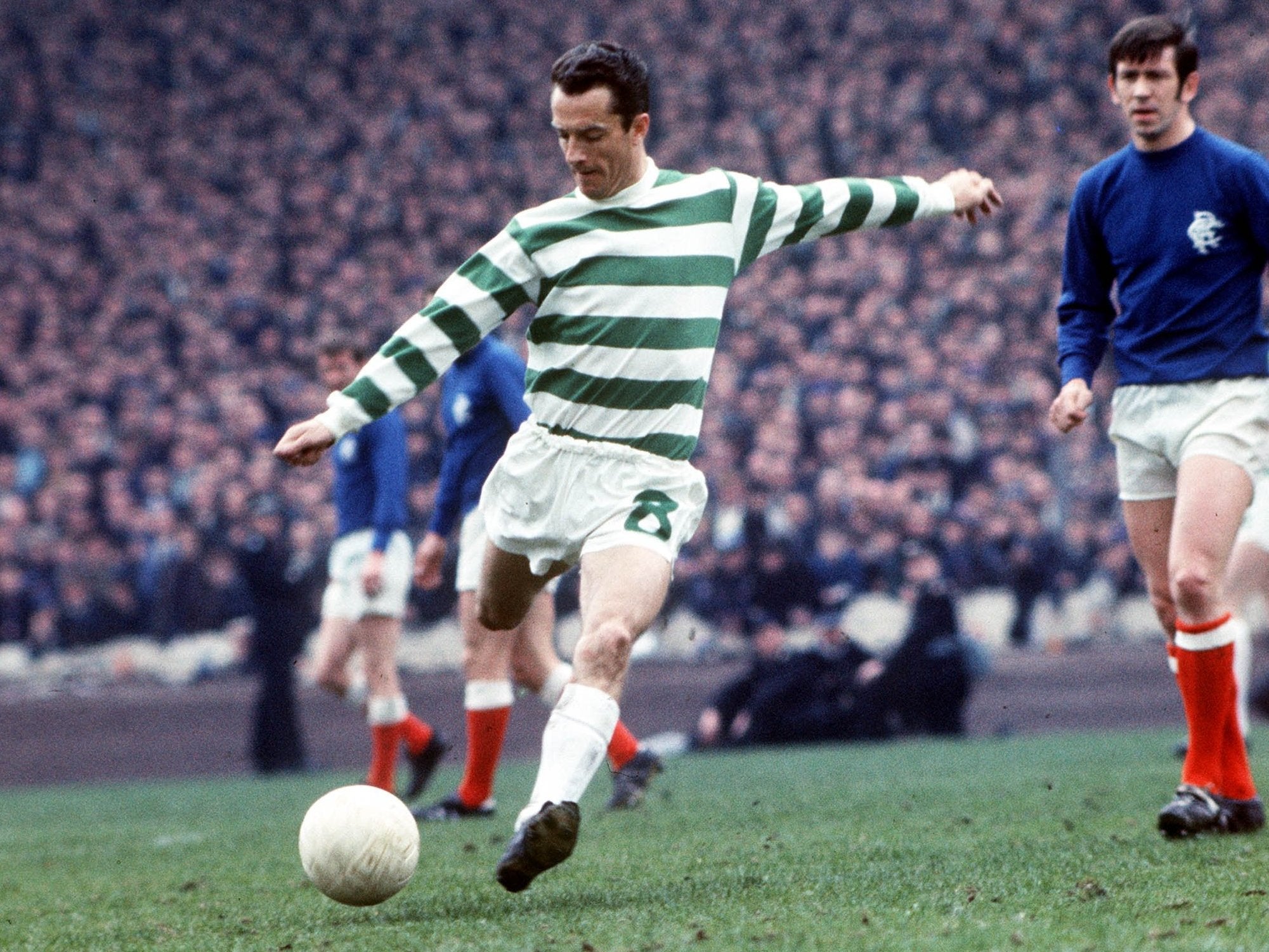Stevie Chalmers: the Celtic goalscorer who beat a death sentence before making British football history
The Lisbon Lion defied expectations both on and off the field to become one of the club’s greatest players

When he was 19 years old Stevie Chalmers was given three weeks to live after contracting tubercular meningitis. Barely a decade later he scored one of the most important goals in British football history.
Chalmers, who has died aged 83 two years after his family disclosed that he was suffering from dementia, was the oldest outfield player in the Celtic side that faced Internazionale of Milan in the 1967 European Cup final. The manager, Jock Stein, had wondered whether to select the unassuming 31-year-old for the match, on a baking afternoon in Lisbon, because he feared he was drained by his prodigious running in the semi-final against Dukla Prague.
Stein considered the bulkier, more powerful John Hughes but decided the quick, lean and mobile Chalmers deserved his opportunity at centre-forward. The choice was thrillingly vindicated. With five minutes remaining, and Celtic pressing for a second goal after Tommy Gemmell’s thunderbolt had negated Inter’s early lead, Chalmers deflected Bobby Murdoch’s drive past goalkeeper Giuliano Sarti to ensure the European Cup belonged to Glasgow.
The huge trophy had previously been won only by Real Madrid, Benfica, AC Milan and Inter. Thanks to Chalmers’ astute deft finishing – after cleverly stealing into an advanced position while remaining fractionally onside – the silverware was coming to Britain and indeed northern Europe for the first time. With one thrust of his right foot, the 10 Glaswegians and one teammate, Bobby Lennox, who was born 30 miles away, became immortalised as the Lisbon Lions.
Chalmers was born and grew up in The Garngad, a poor, industrialised neighbourhood in the northeast of the city. His father David was on Celtic’s books and later played for Clydebank. Chalmers was a keen fan of the green-and-white half of Glasgow’s “Old Firm” but his chance of becoming a professional footballer looked slim. He spent his late teens playing for the junior clubs (in Scottish football the term refers to the level of the game, not the age of the players) Kirkintilloch Rob Roy and Ashfield. Then, approaching 20, he was diagnosed with a terminal illness.
After being informed that no one with TB meningitis walked out of the hospital, and spending six months laid up there, Chalmers credited his survival to pioneering treatment by Dr Peter McKenzie, a Rangers supporter. He not only recovered but returned to non-league football, while working for an office equipment company, with such success that the then Celtic manager, Jimmy McGrory, signed him in 1959. His debut, aged 23, came within weeks.

Chalmers went on to make 406 appearances and score 231 goals for the club, the latter total bettered only by McGrory, Lennox and Henrik Larsson. Leading scorer four times in his 12 years in the hoops, his hat-trick against Rangers in 1966 was the first by a Celt in the derby since 1938. He once netted five times against Hamilton; scored in the 1969 Scottish Cup final rout of Rangers; and struck the last goal in a 6-1 defeat of Clyde in his final Celtic appearance in 1971.
When Chalmers left to become player-coach of Morton – prior to joining Partick Thistle and retiring in 1975 – he had four Scottish League winner’s medals, four in the Scottish League Cup and three from the Scottish Cup as well as his European Cup winner’s memento.
There were also five Scotland caps, his three goals including one against world champions Brazil in 1966. He swapped shirts with Pele, who reportedly picked him because he did not want Billy Bremner to have it after some bruising challenges by him.
Chalmers’ death came a week after the passing of the captain of Celtic’s Lisbon Lions, fellow dementia sufferer Billy McNeill. He is survived by his wife Sadie and three daughters and three sons, one of whom, Paul, also became a professional footballer.
Thomas Stephen Chalmers, footballer, born 26 December 1935, died 29 April 2019

Join our commenting forum
Join thought-provoking conversations, follow other Independent readers and see their replies
Comments
Bookmark popover
Removed from bookmarks